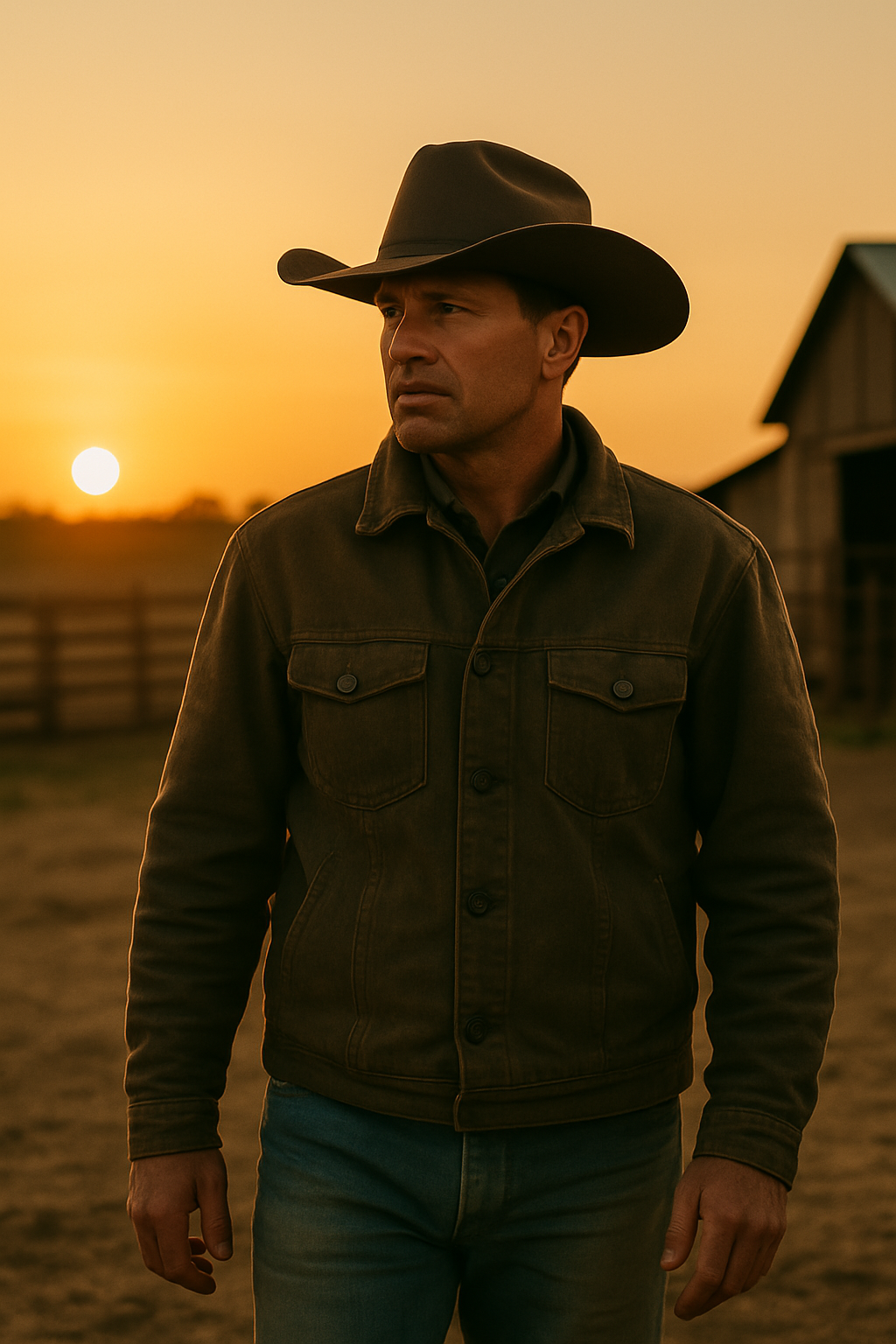
There’s a lot of talk these days about values—what we’ve lost, what we need to get back to. For me, the answer’s always been simple: live by the Cowboy Code.
I wasn’t born into ranching, but I’ve been riding since I was a kid—started out on sheep and climbed my way up. Now, I run a small ranch and still ride bulls when I can. Over the years, I’ve learned that the Cowboy Code isn’t just about how you ride or how you work. It’s about how you live.
In a world that seems louder, faster, and more disconnected by the day, the Cowboy Code keeps you centered. It’s not written in stone, and it sure ain’t trendy—but it’s real. Grit. Honor. Hard work. That’s the foundation.
Grit: Doing the Hard Thing When It’s Hard
Grit isn’t about acting tough—it’s about being tough when life gives you every reason to fold. Whether it’s pulling calves at 2 a.m. during a snowstorm or getting back on a bull after you’ve been slammed to the dirt, grit means you don’t quit.
Researchers define grit as perseverance and passion for long-term goals (Duckworth et al., 2007). Cowboys have been living that long before it had a name. You don’t get to choose easy days out here. You get up, you do the job, and you do it right—even if you’re sore, short on sleep, or staring down a problem you can’t fix in one go.
That kind of toughness doesn’t happen overnight. It’s earned, one hard day at a time.
Honor: Your Word Is Your Bond
The old-timers used to say, “Your name is all you’ve got.” And they were right. Out here, a handshake still means something. You treat people fair. You own your mistakes. You don’t lie to get ahead.
Living with honor means doing right even when no one’s watching. It means keeping your word, whether it’s to a neighbor, a partner, or a greenhorn you hired on. It’s not about perfection—it’s about integrity.
In cowboy culture, honor also means respecting the animals, the land, and the people who came before you (Bellah et al., 1985). We don’t take shortcuts with our stock or our tools, because cutting corners comes back to bite you. We do the job right because it’s right, not because it’s easy.
Hard Work: No Substitutes, No Shortcuts
There’s no way around it—ranch work is hard. Bull riding is harder. And the truth is, if you’re looking for shortcuts, you’re in the wrong life.
When I was starting out, I thought the goal was to be the best rider. But over time, I realized the real goal is to be the best worker. Because if you can show up every day, rain or shine, busted up or bone tired, and still give it everything you’ve got—that’s what separates cowboys from wannabes.
Work ethic is something you pass down, too. Whether it’s showing your kids how to saddle a horse or bringing a new hand along through branding season, you’re building something bigger than yourself. It’s legacy built through labor (Jordan, 2014).
Living the Code in a Modern World
Some folks say the Cowboy Code doesn’t fit today’s world. I disagree. I think today’s world needs it more than ever.
We need people who show up. People who do what they say. People who take pride in honest work and don’t run from responsibility. Whether you’re running a ranch, raising a family, or climbing on bulls, the same rules apply.
I’ve met cowboys in all walks of life—nurses, teachers, welders, truck drivers—who live by the code even if they’ve never stepped in a saddle. Because being a cowboy isn’t about where you live. It’s about how you live.
Final Thoughts
At 44, I’ve seen a lot of trends come and go. But the Cowboy Code has stayed steady. It’s the backbone of who I am and the standard I hold myself to, whether I’m sorting calves in the dust or facing down a bull in the chute.
Grit. Honor. Hard work. Those aren’t just words—they’re how we survive, how we lead, and how we leave something behind that matters.
If you live by the code, you already know. And if you’re just finding your way to it, welcome. It’s not always easy—but it’s always worth it.
References
Bellah, R. N., Madsen, R., Sullivan, W. M., Swidler, A., & Tipton, S. M. (1985). Habits of the heart: Individualism and commitment in American life. University of California Press.
Duckworth, A. L., Peterson, C., Matthews, M. D., & Kelly, D. R. (2007). Grit: Perseverance and passion for long-term goals. Journal of Personality and Social Psychology, 92(6), 1087–1101. https://doi.org/10.1037/0022-3514.92.6.1087
Jordan, T. G. (2014). North American cattle-ranching frontiers: Origins, diffusion, and differentiation. University of Nebraska Press.

